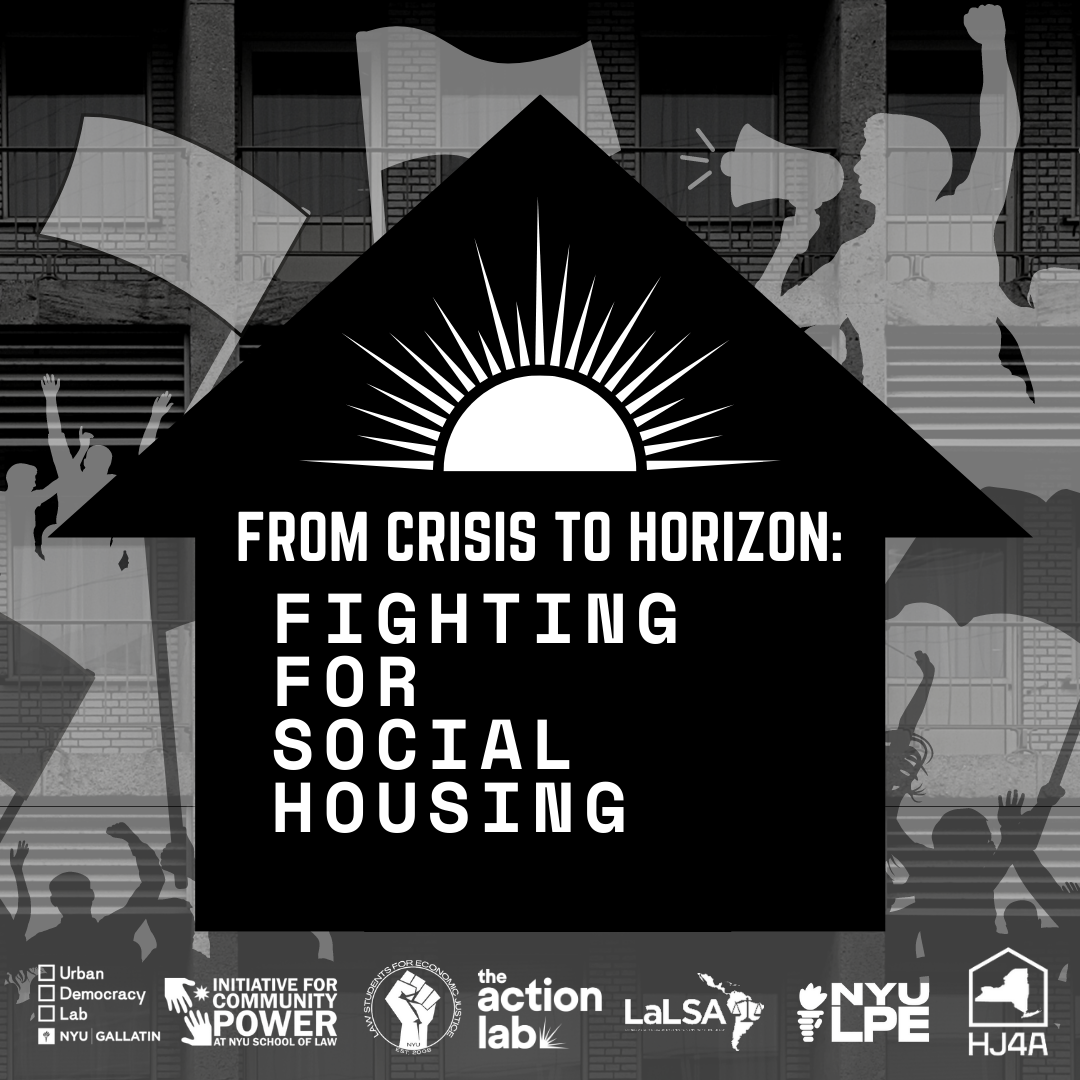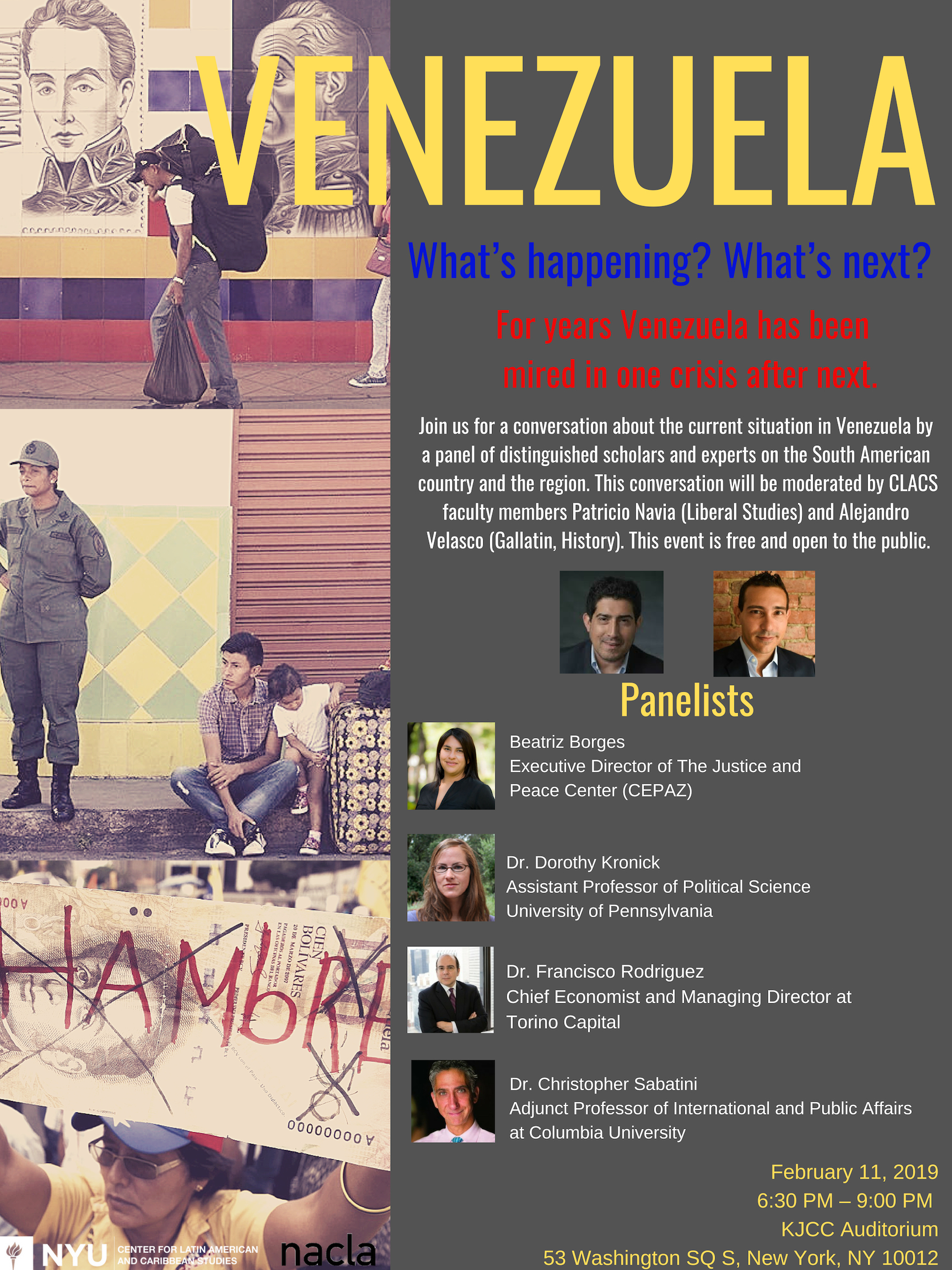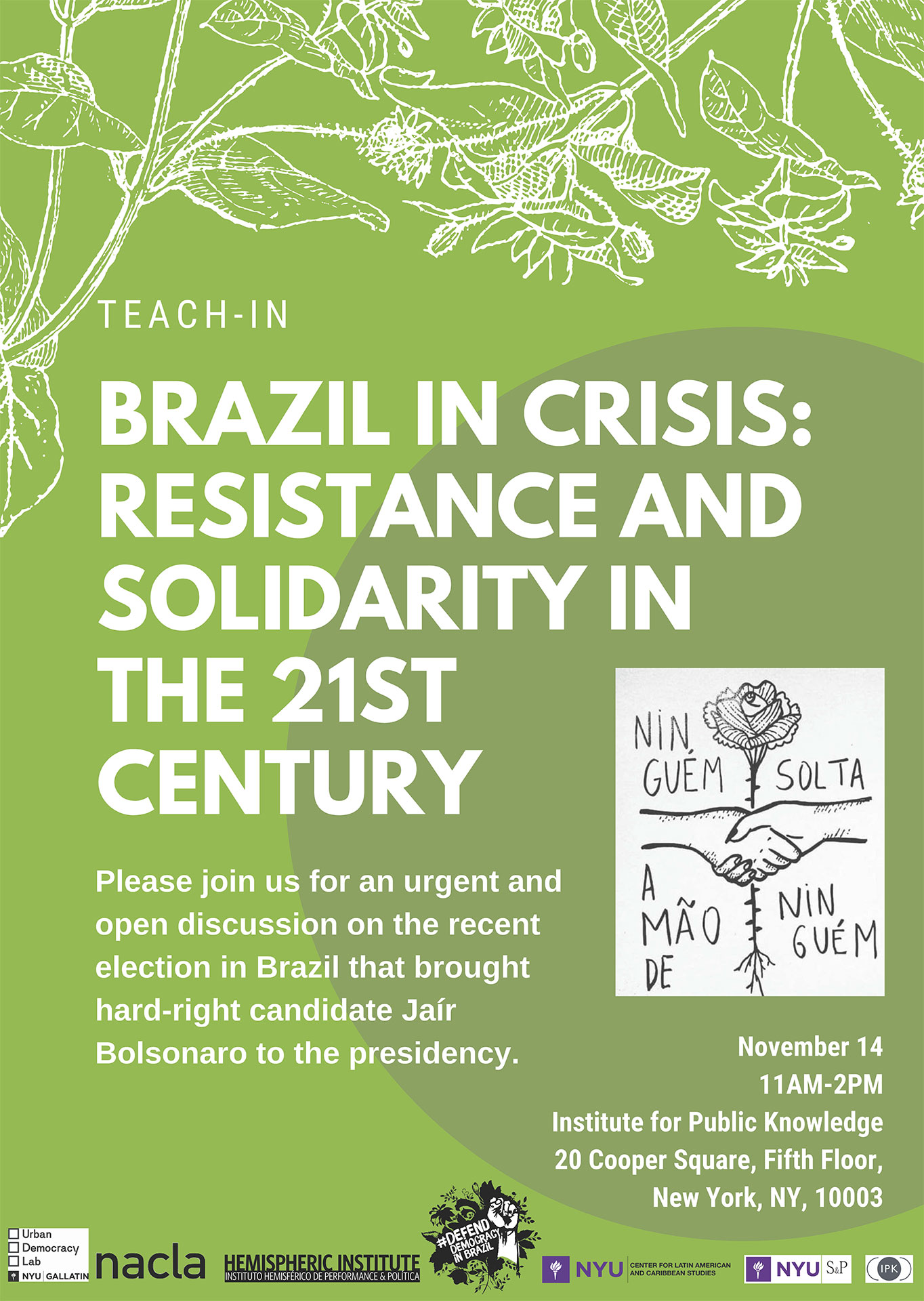For years Venezuela has been mired in a seemingly unending crisis – political impasse, economics chaos, social upheaval. Yet over the past two weeks that crisis appears, at last, to have reached a tipping point. A notoriously fractious opposition has rallied behind a single, youthful leader – Juan Guaidó – who has won the recognition and support of most of the western world. Meanwhile despite growing popular discontent even among former chavista strongholds, Nicolas Maduro remains in power with the support of the military as well as global players like Russia, China, and Turkey. As the stalemate grows and the crisis deepens, what possible futures are in store for Venezuela and it’s people? Is open war on the table? What role should the international community play? And how are Venezuelans themselves responding? Join us for a conversation on the latest from Venezuela.
About the speakers:
Beatriz Borges is the Executive Director of The Justice and Peace Center (CEPAZ), a non-profit organization that works to promote and defend democratic values, human rights, and a culture of peace in Venezuela. CEPAZ’s main areas of action include the promotion of public policies and good government practices with respect to human rights, litigation before international bodies that protect human rights, and the use of information and communications technologies in the human rights field. She is a professor and researcher at the Center for Human Rights of the Universidad Católica Andrés Bello, where she researches international systems for the protection of human rights.
Dorothy Kronick is Assistant Professor of Political Science at University of Pennsylvania. Her research focuses on Comparative political economy, comparative political behavior, electoral politics of crime, Latin American politics, Venezuelan politics, and quantitative methods. She has published articles about Venezuela on various publications such as New York Times, Caracas Chronicles, The New Republic, Hispanic American Center for Economic Research, among others.
Francisco Rodríguez is Chief Economist and Managing Director at Torino Capital. Previously, he was director and senior Andean economist at Bank of America Merrill Lynch. Rodríguez has held numerous positions in academia and public policy. Between 2000 and 2004 he headed the Venezuelan Congressional Budget Office. He has taught economics at the University of Maryland at College Park, Wesleyan University, and the Instituto de Estudios Superiores de Administración in Caracas. Between 2008 and 2011, Rodríguez served as head of research at the Human Development Report Office at the UN Development Program. His research has been published in journals such as Foreign Affairs, American Economic Journal, and Journal of Economic Growth. He is the co-author of Venezuela before Chávez (Penn State University Press, 2012) He holds a PhD in economics from Harvard University.
Christopher Sabatini is an adjunct professor at the School of International and Public Affairs (SIPA) at Columbia University, the founder and executive director of the new research non-profit, Global Americans and the editor of its news and opinion website www.LatinAmericaGoesGlobal.org. With support from the National Endowment for Democracy and the Ford Foundation, Global Americans conducts research on social inclusion and foreign policy and democracy and human rights. In September 2015 he was recognized as the best professor of a small class in SIPA.
From 2005 to 2014, he was the senior director of policy at the Americas Society and Council of the Americas (AS/COA) and the founder and editor-in-chief of the hemispheric policy magazine Americas Quarterly (AQ). At the AS/COA, Dr. Sabatini chaired the organization’s Rule of Law working group. He also chaired the AS/COA Cuba Working Group. From 1997 to 2005, Dr. Sabatini was the Director for Latin America and the Caribbean at the National Endowment for Democracy. From 1995 to 1997, he was a Diplomacy Fellow with the American Association for the Advancement of Science, and has served as an advisor to the World Bank and the U.S. Agency for International Development.
About the moderators:
Patricio Navia is Clinical (Full) Professor of Liberal Studies and Adjunct Assistant Professor in the Center for Latin American and Caribbean Studies at New York University. Navia is also a Professor of Political Science at Universidad Diego Portales in Chile. Ph.D. in Politics from New York University, an M.A. in Political Science from the University of Chicago and a B.A. in Political Sciences and Sociology from the University of Illinois at Chicago. He has been a visiting professor at Princeton University, New School University, Universidad de Salamanca, Universidad de Chile and NYU Buenos Aires, and a visiting fellow at the University of Miami. He has published scholarly articles and book chapters on democratization, electoral rules and democratic institutions in Latin America. As founding director of Observatorio Electoral at Universidad Diego Portales, he has co-edited Democracia Municipal (2012), El sismo electoral de 2009. Cambio y continuidad en las preferencias políticas de los chilenos (2010) and El genoma electoral chileno. Dibujando el mapa genético de las preferencias políticas en Chile (2009). His books Diccionario de la política chilena (with Alfredo Joignant and Francisco Javier Díaz), El díscolo. Conversaciones con Marco Enríquez-Ominami (2009), Que gane el más mejor: Mérito y Competencia en el Chile de hoy (with Eduardo Engel, 2006) and Las grandes alamedas: El Chile post Pinochet (2004) have been best sellers in Chile. He is a columnist in El Líbero in Chile, Buenos Aires Herald, and Infolatam.com. He has previously penned columns for La Tercera, Capital and Poder magazines in Chile, Perfil in Argentina.
Alejandro Velasco is a historian of modern Latin America whose research and teaching interests are in the areas of social movements, urban culture and democratization. His book, Barrio Rising: Urban Popular Politics and the Making of Modern Venezuela (University of California Press, 2015), couples archival and ethnographic research to examine how residents of Venezuela’s largest public housing community pursued full citizenship during the heyday of Latin America’s once-model democracy. Before joining the Gallatin faculty, Professor Velasco taught at Hampshire College, where he was a Five College Fellow, and at Duke University. His teaching record includes interdisciplinary courses on contemporary Latin America, including seminars on human rights, cultural studies, and urban social movements; historical methods courses on 20th-century revolutions; graduate history courses on urban political history and workshops with primary and secondary school educators. At Gallatin, his courses include “(Re)Imagining Latin America,” “¡Revolución!,” “Incivility in the Age of Civil Society,” and “Art and Politics in the City,” a multi-sited collaboration between NYU Buenos Aires and NYU Washington Square. Professor Velasco’s research has won major funding support from the Social Science Research Council, the American Historical Association, the Ford Foundation, and the Mellon Foundation, among others, and he has presented widely at both national and international conferences and symposia.
RSVPNew York University and Gallatin provide reasonable accommodations to people living with disabilities who wish to attend events at the School. For every event, Gallatin staff will be on hand to assist guests. Please note that the entrance at 715 Broadway is wheelchair accessible. To request accommodations, such as a sign language interpreter, assistive listening devices, or large print programs, or should you have questions regarding accessibility for an event, please contact Gallatin’s Office of Special Events by emailing events.gallatin@nyu.edu or by calling 212-992-6328. Should you need an accommodation, we ask that you send your request as early as possible so that we have time to fulfill your request.




